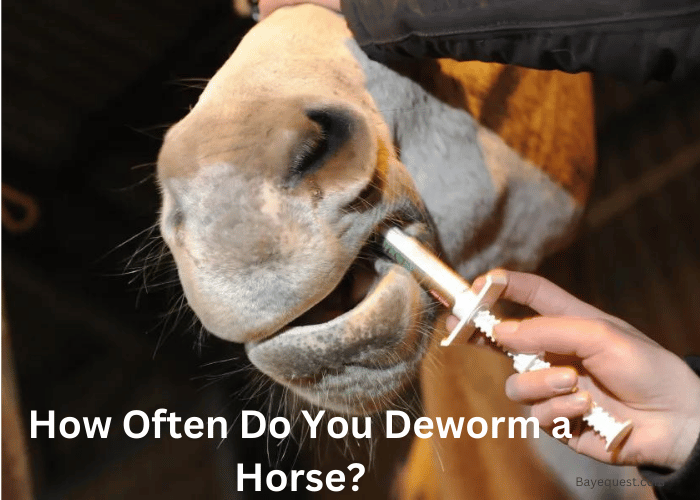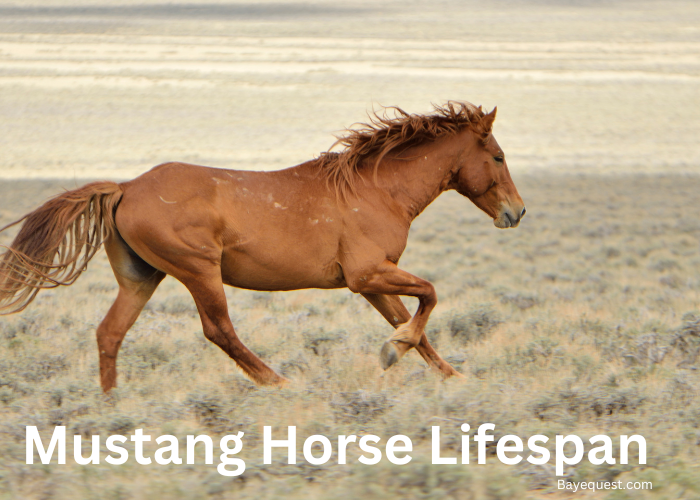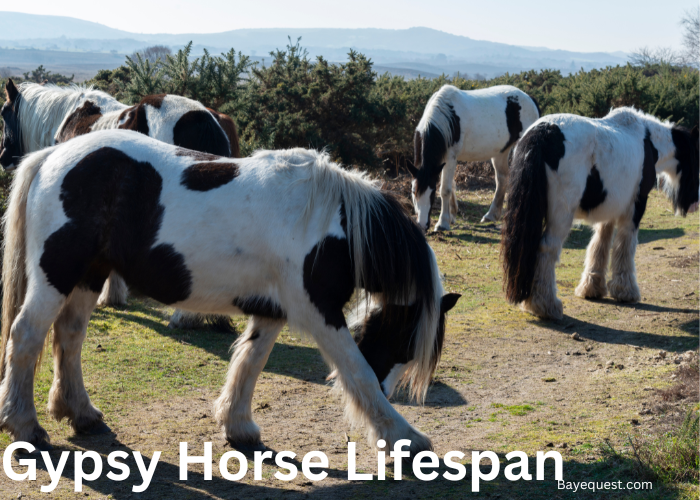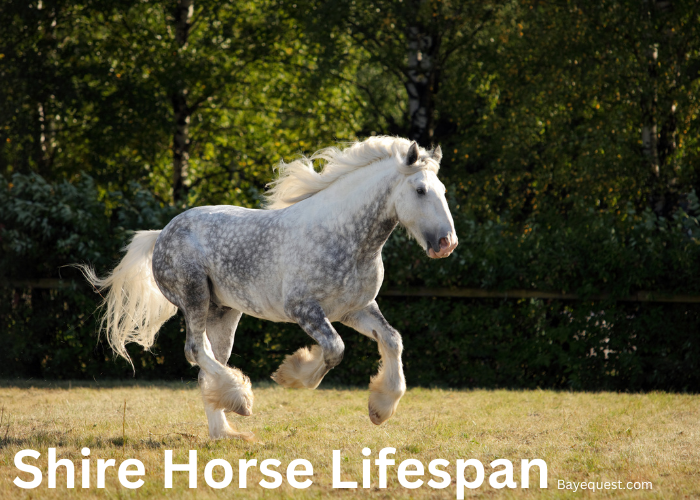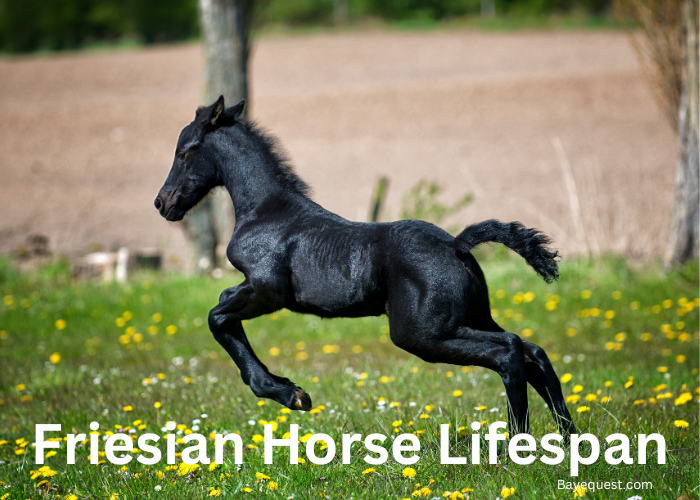Deworming your horse is more than just a chore; it’s a must for their health. But how often should you do it?
Once a month? Every season? It can be confusing. Don’t worry; we’ve got you covered.
This blog will tell you all you need to know about deworming schedules. It is short, sweet, and concise, with no confusing terms or lengthy explanations.
This is just clear, simple advice. With our easy tips, you can keep your horse happy and worm-free. Ready? Let’s get started.
How Often Do You Deworm a Horse? Key Takeaway
Deworming frequency depends on age, environment, and parasite load. Foals require deworming every 2-3 months until one year old. Adult horses typically need 2-4 treatments annually, guided by fecal egg count (FEC) tests. Senior horses may need adjustments based on FEC results and overall health.
What is Horse Deworming?
Horse deworming is administering medication to horses to eliminate internal parasites, such as worms.
These parasites can cause health issues like weight loss, poor coat condition, colic, and overall weakness. Deworming helps maintain the horse’s health by reducing the parasite load.
Importance of Deworming Your Horse
In this section, we’ll dive into why regular deworming is important and how it benefits your horse.
Prevents health issues
Parasites consume nutrients meant for the horse, leading to weight loss and poor body condition.
Infested horses often have dull, unhealthy coats due to nutrient deficiencies caused by parasites.
Worms can cause severe abdominal pain and colic, which can be life-threatening if not treated.
Improves digestion and nutrient absorption
Parasites interfere with the horse’s digestive system, reducing its ability to absorb essential nutrients from food. Deworming helps ensure that the horse gets the full benefit from its diet.
Enhances performance and energy levels
A horse free of parasites will have more energy and better performance in riding, racing, and work activities. Parasite-free horses are generally more active and vibrant.
Prevents internal damage
Some parasites can cause significant internal damage, including intestine blockages, blood vessel damage, and tissue inflammation. Regular deworming minimizes these risks.
Reduces transmission to other horses
Deworming reduces the number of parasites that are shed in the environment. This lowers the risk of spreading infections to other horses in the same area or pasture.
Promotes overall well-being
Regular deworming supports the overall health and well-being of the horse. Thus, the horse leads a healthy and comfortable life free from the discomfort and risks associated with parasites.
Economic benefits
Preventing parasite-related illnesses can save on veterinary costs and improve the horse’s longevity and productivity, offering economic benefits to horse owners.
Risks and Consequences of Neglecting Deworming
Neglecting deworming can lead to serious health issues for your horse.
Parasites steal the nutrients that your horse needs, causing weight loss and poor body condition. Over time, this can make your horse weak and more susceptible to other illnesses.
Worms can also cause colic, a painful and sometimes fatal condition. Your horse can suffer from severe abdominal pain, leading to distress and possibly requiring emergency veterinary care.
Parasites don’t just affect your horse’s weight and digestion. They can also cause internal damage.
Worms can block the intestines, damage blood vessels, and inflame tissues. This internal havoc can lead to long-term health problems that are difficult and costly to treat.
Another risk of neglecting deworming is the spread of parasites to other horses. If infested, your horse can shed eggs into the environment, contaminating the pasture.
This puts other horses at risk, creating a cycle of infection that can be hard to break. Regular deworming helps control the parasite population, protecting your horse and the entire herd.
In the end, skipping deworming can also have economic consequences. The cost of treating parasite-related illnesses can add up quickly.
Veterinary bills, medications, and potential performance loss can strain your budget. Regular deworming is a small investment compared to the cost of dealing with a sick horse.
Factors Influencing Deworming Frequency for Horses
Several factors influence how often you should deworm your horse. Here’s a breakdown of the key considerations:
Age of the horse
Young horses, especially foals, are more susceptible to parasites. They need more frequent deworming compared to adult horses.
As they grow, their immune systems develop, and they can handle parasites better. Older horses might need a tailored deworming schedule based on their health needs.
Health and immune status
A horse’s overall health and immune system greatly affect how often deworming is needed.
Horses with weakened immune systems or underlying health issues might require more frequent deworming. Healthy horses with strong immune systems can often go longer between treatments.
Pasture management practices
How you manage your pasture affects parasite exposure. Regularly removing manure, rotating pastures, and not overcrowding can reduce the parasite load in the environment.
Horses on well-managed pastures may need less frequent deworming.
Climate and seasonal changes
Parasite activity varies with the seasons. Warm, moist climates are ideal for parasites to thrive.
In such areas, you might need to deworm more often. In colder climates, parasite activity decreases in winter, potentially reducing the need for frequent deworming during these months.
Fecal egg count (FEC) testing
FEC testing helps determine the number of parasite eggs in a horse’s feces. This test provides a snapshot of the horse’s parasite load and helps customize the deworming schedule.
Horses with low egg counts might need less frequent deworming. Those with high counts require more regular treatments.
Equine Dewormer Schedule
Here’s how to keep your horses healthy with tailored deworming schedules for foals, adults, and seniors, ensuring effective parasite control.
Equine deworming chart for fouls and young horses
| Age | Frequency | Common dewormers |
| 2-3 months | Every 2-3 months | Fenbendazole, Ivermectin |
| 4-6 months | Every 2-3 months | Pyrantel pamoate |
| 6-12 months | Every 2-3 months | Oxibendazole, Moxidectin |
Dewormer chart for adult horses
| Deworming Strategy | Frequency | Common Dewormers |
| FEC < 200 EPG | Twice a year (Spring, Fall) | Ivermectin, Moxidectin |
| FEC > 200 EPG | 3-4 times a year | Pyrantel pamoate, Fenbendazole, Praziquantel |
| Rotational Deworming | Every 3-4 months | Alternating Dewormers |
Senior horse wormer chart
| Health condition | Frequency | Common Dewormers |
| Good Health, Low FEC | Twice a year (Spring, Fall) | Ivermectin, Moxidectin |
| Compromised Health | Based on FEC results | Tailored by Vet |
| High Parasite Load | 3-4 times a year | Fenbendazole, Pyrantel pamoate |
NOTE: These schedules should be adjusted based on fecal egg count (FEC) results and under the guidance of a veterinarian.
Types of Worms and Problems They Cause
Roundworms (Ascarids)
Roundworms, also known as ascarids, primarily affect foals and young horses. They can grow up to 15 inches long and live in the small intestine.
These parasites cause poor growth, weight loss, and a dull coat. Severe infestations can lead to intestinal blockages, causing colic, which can be life-threatening.
Roundworm larvae migrate through the lungs, causing respiratory issues. They also compromise the immune system, making young horses more susceptible to other infections.
Roundworms can lay thousands of eggs daily. Therefore, regular deworming and pasture management are crucial to control them.
Small redworms (Cyathostomes)
Small redworms, or cyathostomes, are one of the most common and dangerous parasites in horses. These worms can encyst in the gut wall and remain dormant for months, even years.
When they emerge en masse, they cause severe damage to the intestinal lining, leading to colic, diarrhea, and rapid weight loss. This condition is known as larval cyathostomiasis and can be fatal if not treated promptly.
Small redworms are resistant to many dewormers, making them challenging to control. Regular fecal egg counts and strategic deworming are essential to managing these parasites.
Large redworms (Strongyles)
Large redworms, or strongyles, are among the most harmful parasites for horses. They migrate through the horse’s bloodstream, damaging blood vessels and organs.
The most dangerous species, Strongylus vulgaris, targets the arteries supplying the intestines. This causes sudden inflammation, clots, and blockages, which can lead to colic, laminitis and even death.
Large redworms are less common today due to effective deworming programs, but they still pose a significant threat. Monitoring and strategic deworming are vital to prevent these parasites from causing serious harm to your horse.
Bots (Gastrophilus)
Bots are the larvae of botflies, and they primarily affect horses during the warmer months. Adult botflies lay eggs on the horse’s legs, chest, and face.
When the horse licks these areas, the eggs hatch, and the larvae enter the mouth, eventually attaching to the stomach lining. Bots can cause irritation, ulcers, and inflammation in the stomach and intestines.
They can also obstruct the digestive tract, leading to colic. Regularly deworm your horse in the fall and spring to control botfly populations.
Pinworms (Oxyuris equi)
Pinworms are relatively less harmful but still cause significant discomfort. Adult pinworms live in the large intestine and rectum.
Female worms lay eggs around the horse’s anus, causing intense itching. Horses often rub their tails and hindquarters to relieve the itch, leading to hair loss, sores, and skin infections.
The itching and discomfort can affect the horse’s behavior and performance. Pinworm eggs can be resistant to some dewormers, so it’s essential to use effective deworming agents.
Threadworms
Threadworms affect foals, often transmitted through the mare’s milk. These parasites can cause diarrhea, dehydration, and weakness in young horses.
Severe infestations can stunt growth and make foals more susceptible to other infections. Threadworms can migrate through the lungs, causing respiratory issues.
Effective deworming of pregnant mares before foaling and maintaining clean, dry environments for foals are critical to controlling threadworm infections.
Lungworms
Lungworms are more common in donkeys but can also affect horses, especially when co-grazed with donkeys. These parasites live in the respiratory tract, causing chronic coughing, nasal discharge, and difficulty breathing.
Lungworm infections can lead to pneumonia and other respiratory complications. Diagnosis often involves a lungworm-specific fecal test or examination of respiratory fluids.
To prevent lungworm infections, deworming the donkeys and horses and avoiding co-grazing if lungworms are a known issue.
Bloodworms (Strongylus vulgaris)
Bloodworms, specifically Strongylus vulgaris, are highly dangerous parasites. They migrate through the horse’s bloodstream, causing severe damage to blood vessels.
This can lead to inflammation, clots, and blockages, resulting in severe colic, laminitis, and even sudden death. Due to effective deworming practices, bloodworms are less common today, but they remain a serious threat.
How Do Horses Get Internal Parasites?
Horses acquire internal parasites primarily through grazing on contaminated pastures. Parasite eggs and larvae are shed in the feces of infected horses.
These eggs and larvae then contaminate the grass and soil. When horses graze, they ingest the parasite larvae, starting a new infection cycle.
This method of transmission is common for many types of worms, including roundworms, small redworms, and large redworms.
Another common way horses get internal parasites is through contact with contaminated water. Parasite eggs can survive in water sources like puddles, streams, or troughs.
When a horse drinks contaminated water, it ingests the parasite eggs, leading to infection. Maintaining clean water sources and ensuring proper pasture drainage can help minimize this risk.
Foals can acquire certain parasites directly from their mothers. Threadworms, for instance, can be transmitted through the mare’s milk.
Pregnant mares not adequately dewormed before foaling can pass these parasites to their newborns. This can lead to early and severe infections in young horses.
Environmental factors also play a role in the spread of parasites. Warm and moist conditions are ideal for the development and survival of parasite larvae in the environment.
Pastures with poor drainage or those that are heavily grazed and not properly managed can also be a hotbeds for parasites.
Horses can also pick up parasites through direct contact with infected animals. Co-grazing with donkeys, for example, can lead to lungworm infections, as donkeys are natural hosts for these parasites.
Signs Your Horse May Need Deworming
Recognizing these signs early can help ensure your horse remains healthy and parasite-free.
Weight loss. Unexplained weight loss or difficulty maintaining a healthy weight.
Poor coat condition. A dull, rough, or patchy coat despite good nutrition and grooming.
Diarrhea. Persistent or recurrent diarrhea, indicating possible gastrointestinal distress caused by parasites.
Colic symptoms. Signs of abdominal pain, such as rolling, pawing at the ground, or looking at the flanks.
Lethargy. Reduced energy levels, decreased stamina, or lack of enthusiasm for usual activities.
Decreased appetite. A noticeable decline in eating habits or a loss of interest in food.
Pot-bellied appearance. An enlarged abdomen, often seen in young horses, indicates a heavy parasite load.
Tail rubbing. Frequent rubbing of the tail against objects, which can indicate pinworm infection and cause hair loss.
Respiratory issues. Coughing, nasal discharge, or difficulty breathing may be signs of lungworm or other parasitic infections.
Poor performance. Decreased athletic performance, slower recovery after exercise, or general underperformance in work or competition.
Visible worms in manure. Presence of worms or worm segments in the horse’s feces.
Skin irritation. Unexplained itching or skin lesions can be related to external or internal parasitic infestations.
General weakness. Overall weakness or an inability to keep up with other horses, indicating a compromised health state.
Fecal Egg Count (FEC) results. High parasite egg counts in fecal tests suggesting a heavy internal parasite burden.
What Medicine Should I Use to Deworm My Horse?
The choice of deworming medicine for your horse depends on the type of parasites present and their lifecycle. Here’s a guide to help you understand the commonly used dewormers:
| Medicine | Effective Against | Usage | Suitable for |
| Ivermectin | Large strongyles, small strongyles, pinworms, roundworms, threadworms, bots | Broad-spectrum dewormer; used in spring and fall | Adult horses, foals over 6 weeks |
| Moxidectin | Large strongyles, small strongyles (encysted larvae), pinworms, roundworms, bots | Similar to ivermectin; effective against encysted larvae; used in spring or fall | Adult horses, foals over 4 months. |
| Fenbendazole | Large strongyles, small strongyles, pinworms, roundworms | Used in strategic programs; “power pack” for encysted larvae | Pregnant mares, young foals |
| Pyrantel Pamoate | Large strongyles, small strongyles, pinworms, roundworms, tapeworms (double dose) | Good all-around dewormer; used at regular intervals | Pregnant mares, foals |
| Praziquantel | Tapeworms | Combined with ivermectin or moxidectin, used in fall and spring | All horses |
| Oxibendazole | Large strongyles, small strongyles, pinworms, roundworms | Broad-spectrum dewormer; part of rotational programs | All horses |
How to Implement a Deworming Program for Your Horse
First, consult with a veterinarian. They will assess your horse’s health and environment. This helps to create a tailored deworming schedule.
Next, conduct fecal egg count (FEC) tests. These tests show the parasite load in your horse. Use the results to plan your deworming treatments. High parasite loads need specific dewormers.
Rotate different classes of dewormers. This prevents parasites from becoming resistant. For example, use ivermectin in spring, pyrantel pamoate in summer, and moxidectin in fall. Don’t use the same dewormer repeatedly within a year.
Manage pastures well. Remove manure regularly to reduce parasites. Rotate pastures and avoid overgrazing. Provide clean water and feed off the ground to prevent contamination.
Administer dewormers correctly. Dose based on your horse’s weight. Under-dosing is ineffective and promotes resistance. Over-dosing can harm your horse. Follow the vet’s instructions and product labels.
Review and update the deworming program regularly. Parasite populations change over time. Stay informed about the latest recommendations and best practices. Work closely with your veterinarian to keep the program effective.
In summary, consult your vet, use FEC tests, rotate dewormers, manage pastures, dose correctly, and update the program. These steps ensure your horse stays healthy and parasite-free.
Read also: Vaccines that Horses Need.
Best Practices for Deworming Horses
Deworming is essential for maintaining your horse’s health and preventing parasite-related issues. Adopting best practices ensures effective parasite control and promotes your horse’s well-being. Here are the top recommendations:
- Get expert advice to tailor a deworming schedule for your horse’s needs.
- Monitor parasite loads and adjust deworming plans accordingly.
- Target treatments to the specific parasites identified in FEC tests.
- Avoid using the same type of dewormer repeatedly to reduce the risk of resistance.
- Ensure the correct dosage to maximize efficacy and prevent under- or overdosing.
- Use the appropriate method and ensure the horse ingests the full dose.
- Implement good pasture practices to reduce parasite exposure.
- Decrease the number of parasite eggs in the environment by frequent manure removal.
- Move horses between pastures to interrupt parasite life cycles.
- Ensure water sources are free from parasite contamination.
- Prevent ingestion of parasite larvae by using raised feeding stations.
- Keep detailed records of treatments to track effectiveness and plan future deworming.
- Adapt the plan based on changes in parasite loads and new recommendations.
- Keep up-to-date with current best practices and research.
- Ensure everyone involved in horse care understands and follows the deworming plan.
How to Avoid Parasites in Horses
Here are the key steps to keep your horse parasite-free:
Maintain clean pastures. Regularly remove manure from fields and paddocks. This reduces the number of parasite eggs and larvae in the environment.
Rotate pastures. Move horses between different grazing areas. This helps break the life cycle of parasites, as they depend on consistent hosts to survive.
Provide clean water. Ensure that water sources are clean and free from contamination. Regularly clean water troughs and prevent horses from drinking from stagnant water.
Feed off the ground. Use raised feeding stations or feed bins. This prevents horses from ingesting parasite larvae present in the soil or manure.
Implement strategic deworming. Work with a veterinarian to develop a targeted deworming program based on fecal egg count (FEC) results. This helps to use dewormers only when necessary, reducing the risk of resistance.
Regular Fecal Egg Count (FEC) testing. Conduct FEC tests every few months. This helps monitor the parasite load in your horse and adjust the deworming schedule accordingly.
Rotate dewormers. Use different classes of dewormers in a rotational schedule. This helps prevent parasites from developing resistance to a specific dewormer.
Quarantine new horses. Isolate new horses for at least 2-3 weeks and perform FEC tests before introducing them to the herd. This prevents bringing in new parasites.
Minimize overgrazing. Avoid overstocking pastures and ensure there is enough grazing space for all horses. Overgrazing increases the risk of parasite transmission.
Use fly control measures. Implement fly control strategies, as flies can be vectors for certain parasites. Use fly traps, repellents, and good manure management.
Educate caretakers. Ensure that everyone involved in horse care understands and follows good management practices. Proper education helps in maintaining a consistent approach to parasite prevention.
Regular veterinary check-ups. Schedule regular health check-ups with a veterinarian. Early detection of health issues, including parasites, ensures timely treatment and prevention.
See also: Fecal Water Syndrome in Horses.
How Often Do You Deworm Horses? Conclusion
Deworming your horse is like giving them a spa day for their insides. Keep it simple: consult your vet, do those FEC tests, and follow a tailored plan.
Rotate your dewormers and manage your pastures well. Your horse will thank you with a shiny coat and a happy trot.
No more worrying about those pesky parasites. A healthy horse is a happy horse. So, saddle up and keep your horse worm-free.




